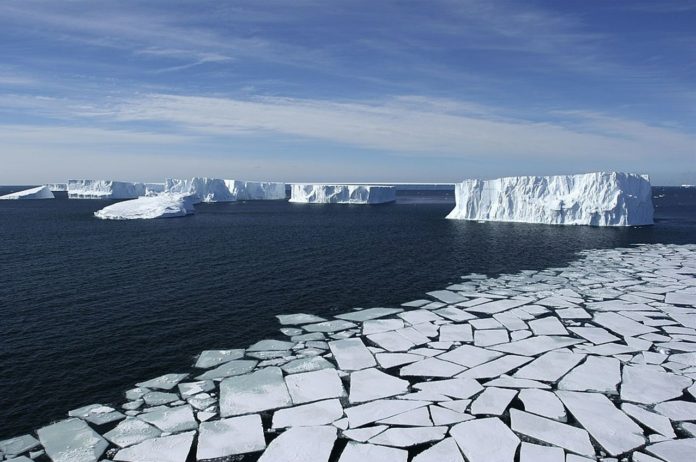The world’s oceans have a huge capability of absorbing and transporting heat trapped in the atmosphere as a result of excess carbon emissions from human activities. Indeed, scientists have noticed worldwide rising waters, particularly near the surface where heat from the atmosphere is entering.
But the waters around the Antarctic were not warming like the rest of the world’s oceans.
Now, a new study claims that the Antarctic Circumpolar Current (ACC), the only ocean current that circles the planet, is accelerating.
Using a decades-long set of observational records, scientists are able to tell that this is happening for the first time.
Researchers from UC San Diego’s Scripps Institution of Oceanography, Woods Hole Oceanographic Institution, the Chinese Academy of Sciences, and UC Riverside used satellite data of sea-surface height and records from the Argo global network of ocean floats to uncover a previously unknown trend in Southern Ocean upper layer velocity.
The findings of the Southern Ocean Carbon and Climate Observations and Modeling (SOCCOM) project, which is sponsored by the National Science Foundation, are published in the journal Nature Climate Change on Nov. 29.
As the climate warms, the predominant westerly winds have accelerated. Models suggest that increasing wind speed has little effect on ocean currents. Rather, it stimulates ocean eddies, which are circular water flows that travel in the opposite direction of the main currents.
“From both observations and models, we find that the ocean heat change is causing the significant ocean current acceleration detected during recent decades,” says Jia-Rui Shi, formerly a PhD student at Scripps Oceanography and currently a postdoctoral researcher at Woods Hole Oceanographic Institution.
“This speedup of the ACC, especially its jet centered on the Subantarctic Front, facilitates property exchange, such as of heat or carbon, between ocean basins and creates the opportunity for these properties to increase in subsurface subtropical regions.”
The Antarctic Circumpolar Current (ACC) encircles Antarctica, separating cold subtropical water to the south from milder subtropical water to the north. This warmer section of the Southern Ocean absorbs a large portion of the heat that humans are putting into the atmosphere. For this reason, experts believe it is critical to comprehend its dynamics, as what occurs there could have a global impact on climate.
The pattern of ocean warming is crucial. Currents between warm and cold waters speed up as the gradient, or degree of heat difference, between them increases.
“The ACC is mostly driven by wind, but we show that changes in its speed are surprisingly mostly due to changes in the heat gradient,” adds co-author Lynne Talley, a physical oceanographer at Scripps Oceanography.
Before the advent of satellite-mounted equipment and the Argo network, long-term data capturing changes in the Southern Ocean was difficult to come by. The network of self-contained floats, which monitor ocean parameters such as temperature and salinity, was established in 1999 and reached full capacity in 2007.
To this day, a full complement of 4,000 floats continues to collect data across the world’s oceans. The researchers were able to discern the speeding current’s trend from natural variability using more than a decade’s worth of Argo data.
According to the study’s co-authors, the current’s speed is anticipated to grow much more if the Southern Ocean continues to absorb heat from human-caused global warming.
Source: 10.1038/s41558-021-01212-5
Image Credit: iStock
You were reading: Missing heat returns to Southern Ocean, making world’s strongest currents flow faster
